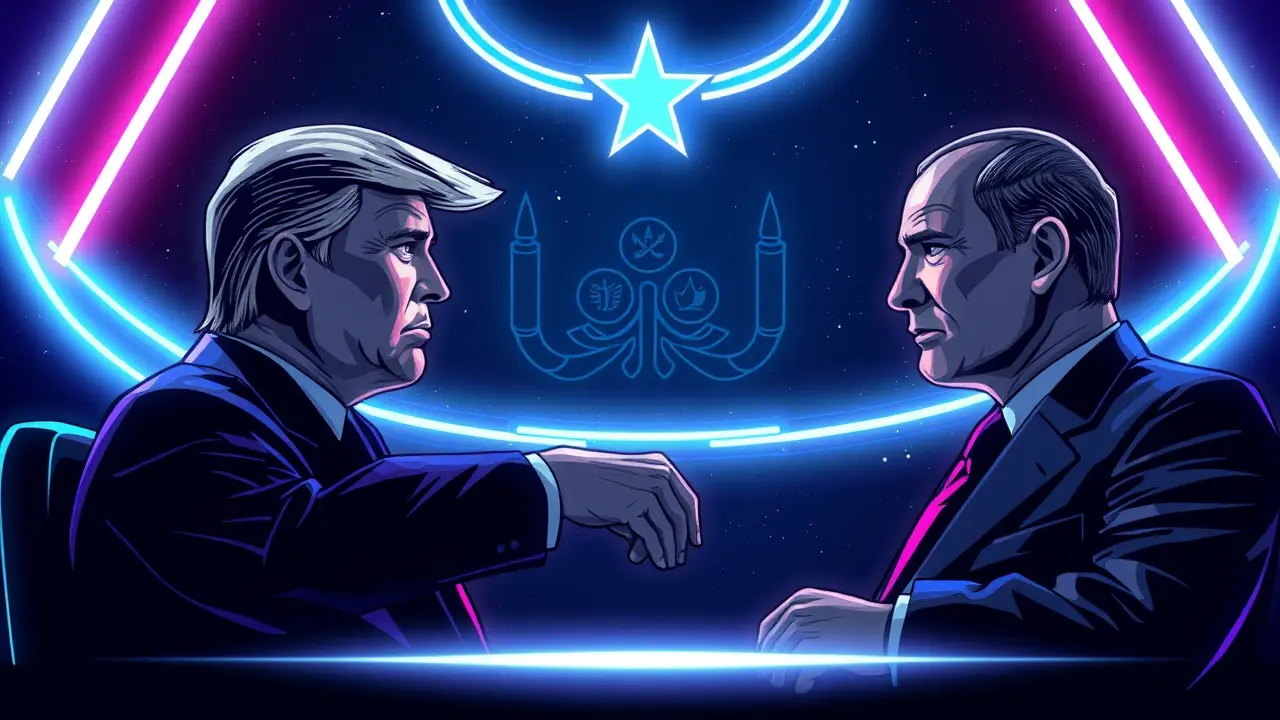Zelensky Seeks Missiles in Washington After Trump-Putin Meeting
In a diplomatic gambit reminiscent of the most tense chapters of the Cold War, Ukrainian President Volodymyr Zelensky is en route to Washington, his mission clear and urgent: to secure advanced missile systems from a key ally whose political landscape is undergoing a seismic shift. This hastily arranged meeting with President Donald Trump comes merely a day after the American commander-in-chief agreed to face-to-face talks with Russian President Vladimir Putin, a development that has sent shockwaves through diplomatic circles from Brussels to Kyiv.The sequence of events is not merely coincidental but a stark manifestation of the new, unpredictable geopolitical theater where traditional alliances are being stress-tested. One can draw a direct parallel to the 1945 Yalta Conference, where the post-war fates of nations were decided by a small council of powerful leaders, leaving smaller powers like Poland to navigate the consequences.Today, Ukraine finds itself in a similarly precarious position, its sovereignty and territorial integrity potentially on the table as two of the world's most dominant figures prepare to parley. For Zelensky, the Washington trip is a critical counter-move, an attempt to reinforce the West's military commitment before his nation's fate is potentially negotiated over his head.The specific missiles he seeks—likely longer-range Army Tactical Missile Systems (ATACMS) or advanced air defense capabilities—are not just weapons; they are symbolic tokens of American resolve. Their provision would signal an unwavering commitment to Ukraine's defense, while a denial could be interpreted as a prelude to a pressured settlement, one that might force Kyiv to accept compromised terms regarding the illegally annexed Crimea and the ongoing conflict in the Donbas.The Trump-Putin dialogue itself, while light on public details, carries the heavy baggage of Helsinki 2018, where the American president publicly sided with Putin's denials of election interference over the assessments of his own intelligence agencies. This history casts a long shadow, fostering deep anxiety in European capitals that a bilateral deal, perhaps on sanctions relief or spheres of influence, could be struck at the expense of transatlantic unity and Ukrainian blood.The strategic calculus for Trump is complex, balancing a stated desire to end foreign entanglements against the reality that a weakened NATO and an emboldened Russia fundamentally alter the global balance of power in favor of authoritarian states like China. For Putin, the invitation is a long-sought victory, a recognition of Russia's enduring great-power status and a potential avenue to dismantle the coordinated Western response to his aggression.The coming days will thus be a masterclass in high-stakes diplomacy, where the handshakes in Washington and the subsequent summit will not just be about missiles or meetings, but about the very architecture of international order for the coming decade. Will the West hold the line, or are we witnessing the dawn of a new era of great-power condominium, where the security of smaller nations becomes a bargaining chip? The answer lies in the outcomes of these two critical meetings, the echoes of which will be studied by historians and strategists for generations.
It’s quiet here...Start the conversation by leaving the first comment.
